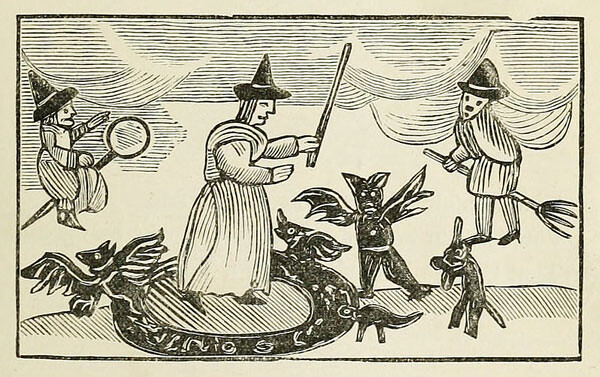In their quest for equal rights, organized women have been ridiculed, underestimated, murdered. But suddenly … it would seem equality is within their reach. Film characters portraying fighting women, TV amazons, state ministers, CEOs: the image has been created. But no, they are barred from universality; their difference is still perceived as contingent, anecdotal, not constitutive of humanity.
—Francesca Gargallo, Latin American Feminist Ideas
One eye closed. The tree moves. The other eye is covered by a hand. The tree seems to move, once again. Still standing at the same place, the head remains unmoved. Both eyes open: the tree occupies a different position. Through the glasses it moves, once again. All stands still at the same place.
I do not have a body: I can’t reclaim my body, forgive my body, acknowledge my body, speak through my body, inhabit my body. I do not own my body. This voice that says “my” body, these fingers that type, are not mine. “I” is an effect of the body, a body, this body, and other bodies too. Anyway, that is what I believe.
I never once woke up and thought, “I am a woman.” Who is the woman? Is it the I or is it the body?
The tree moves slightly to the left if seen from the body of a woman.
Where is the tree? Does it bow gracefully or menacingly before me for being a woman? Is the tree moving for I?
I wonder: How am I qualified to write this? Is being a woman enough to talk about being a woman? How do women talk? Who is the woman, I or the body? What makes me a woman? Who should be speaking here, the body or the Mexican or the white impoverished middle-class artist half-hearted-freelance-day-job-holder woman that is the I? Should it talk like a woman or should it mimic the voice of a man? And if it did, would the tree finally stay still in its place, its proper place, its real place?
Could it trick other Is and other bodies into believing its truth? Is a translation necessary?
Whom should it try to please this time around?
Should it prove it is serious and well-informed about current debates in the Europe and the US?
Should it play the role of the explorer and present a faithful report of the Wild West, the Wild South, the wild wilderness out there, before the King?
Should it speak for others and fake one kind of belonging or another?
Should it fake its belonging to the quarters of the slaves, should it fake its belonging to the King’s council, should it try to be heard? Be heard by whom?
Sometimes it fantasizes: Wouldn’t it be nice to speak from a clean slate, not disembodied, not as a woman, but just as a body that wakes up and feels like sleeping a little longer, or is cold, maybe rolls to one side and tries to fix its gaze through the window on the confused foliage and the shivering branches of the moving tree?
But then it remembers that the privilege of being null, the vanishing point, the zero in the Cartesian plane, is only awarded to a few. The Royal Spanish Academy defines the feminine as the marked gender, assuming that the masculine (which encompasses the feminine) operates “by default.”
Again, should it prove itself a worthy, acceptable, decent upholder of quotations, references, and intellectual property, and like Kafka’s ape write a report to an academy (and maybe, just maybe have a chance, however remote, of landing a teaching job as a woman and a Latina who can rightfully speak about her own)?
Or should it choose a more sensitive style? Something more womanly, admittedly affected, cunningly insincere, but relatable nonetheless?
I have trouble calling myself a feminist. But it’s not the same trouble I have calling myself a Latina, or for that matter the same trouble I have trying to position myself in the oh-so-American, colonial, and already biased notion of a scale of privilege. And I firmly believe that one should be particularly wary of any appeal to biological determinants in order to establish an excuse for domination or exploitation. I do not own my body, but neither do you.
First, I have trouble calling myself a feminist because I take feminism very seriously.
I’m not an academic. I’m not familiar with all the writings, the positions, the debates. I do not hold a PhD in gender studies. I do not publish regularly. I do not have the authority to speak. I do not make a living thinking and talking about and through women/gender/sexual difference/etc.
More importantly, I’m not an activist. I do not belong to an organized group. I may attend a few demonstrations, reluctantly sign one or two petitions, try to invite as many women as I can to the projects I coordinate, but that’s as far as I go. For me, feminism is political. And even if the personal is political, the political only comes about when it involves some sort of organization, inside or outside your home.
Second, because I take feminism very seriously I have even more trouble branding myself as a feminist.
This one is even harder (and even more personal, and political) than the previous two. In the current climate—but also before—branding myself as a feminist, or at least as a woman artist, would be a really beneficial move for my career. Doing so would mean accepting my proper place. But if I feel feminism is important, it is precisely because I feel nobody should be explicitly or implicitly violently coerced into accepting their proper place. And, in my experience, every time “it” becomes a “she,” it does so through a violent imposition of a proper place: the proper garments; the proper attitudes; the proper job description; the proper way to express feelings; the proper way of being rational, emotional, or intuitive; the proper way of writing; the proper way of responding to catcalling; the proper way to flirt; the proper way to face its own sexuality; the proper way to avoid rape and still make friends and influence people; the proper ladylike or not-ladylike way to stand up for itself.
Of course I understand why it is important for the subaltern to be empowered and allowed to voice their own concerns.
And I am being so ironic here. And irony is just a way to point out the fact that there is such a thing as a proper place. Because maybe dear reader, especially if you are sitting on ground zero, looking at the clean slate, at the tree in its proper place, you are not aware of how specific, how utterly loaded, both of the words I highlighted are.
Again, that does not mean I don’t think the oppressed shouldn’t organize and claim their rights, or rather create such rights for themselves. It just means these are confusing and dangerous times, and one should tread carefully and slowly during such times.
So, I support most of the feminist causes, and I agree with many of the agendas within the different feminisms. (And this has to be said, every time: I am unflinchingly pro-choice, I definitely believe that abuses of power should not be condoned, that there is still a lot of work to be done in terms of income equality, recognition, and de-gendering of domestic, affective, and reproductive labor, and—of course—violence against women has to stop. But where does that place me? Am I a first-wave, second-wave, or third-wave feminist? Am I a black feminist? Am I talking about Abya Yala feminisms? About xenofeminism? About Marxist feminisms? French feminisms? Black feminisms? But most importantly: Who is forcing me to choose and why?) Unfortunately, agreement sometimes comes to binaries—like male and female—and I sometimes disagree.
Third, because I take feminisms very seriously I also think that agreeing or disagreeing—especially in public—is also a political choice. The following lines are about this disagreement.
As a working hypothesis, let’s pretend that showing public support for a cause does more than feed big data, or help the almighty algorithm choose what sort of clothing should be marketed to you, or give a veneer of legitimacy to some creepy power that is.
Let’s also assume (and here we are moving from the it, through the I, and towards an us, always just one us amongst many others) that signing one petition or another, adding one more name to a long list of names, is also a political choice, especially when that cause acquires enough momentum to gain a certain amount of visibility.
So no matter how irrelevant adding a drop of water to the ocean may be, the act of subscribing to a document could mean that: 1) we fully agree with the contents of said document; or 2) that we do not fully agree with the contents of said document, but for some reason we believe it has some strategic relevance in a given context or situation, that a united front should be presented if the end is worthy of it.
We certainly believe that violence (or discrimination) against women should not be condoned. But at this point we also believe that the causes of violence against women are not sexual, even if they are expressed through sex (just like they are not biological, but are expressed through the direct control of certain bodily functions like childbirth). The difference between gender and sex that prevails today may cover some ground, insofar as it establishes the possibility of a separation between biology and culture, questions the binary, and helps us to avoid appeals to nature as a last instance.
But introducing a question is not the same as having a satisfying answer. Especially when answers seem particularly urgent, and treading carefully is not a choice.
Mother, if I don’t answer your calls tomorrow, if I don’t tell you I’ll be there for dinner, if tomorrow, mom, the taxi never shows up.
Maybe I’m wrapped in the sheets of a hotel, or in a wheelbarrow, or in a black bag (Mara, Micaela, Majo, Mariana). Maybe I’m in a suitcase or I was lost in the beach (Emily, Shirley).
Don’t be scared mother if you see I was stabbed (Luz Marina). Don’t yell when you see I was dragged (Arlette). Don’t cry mommy if you hear I was impaled (Lucía).
They will tell you it was me; that I did not scream; that it was because of my clothes; because of the alcohol level in my blood. They will tell you it was late at night; that I was alone. That my psychotic ex had motives, that I was unfaithful, that I was a whore.
They will tell you mother that I lived, that I dared to fly high in a world without air.
I swear, mommy, I died fighting.
I swear, old lady, I screamed as high as I flew.
He will remember me, ma, he’ll know it was me who fucked him over when he sees me in the face of all of those who will scream my name. Because, mother, I know you won’t stop.
But, for all you hold dearest, do not tie up my sister; don’t lock up my cousins; don’t stop your nieces. They are not to blame, and neither was I.
It was them, it will always be them. Fight for their wings, the ones they cut off from me. Fight for them to be free and fly higher than I did. Fight so they may scream louder than I did.
Let them live with no fear, as I lived.
Mother dear, don’t cry over my ashes.
If tomorrow it’s me, if I don’t come back tomorrow, destroy everything.
If my turn comes tomorrow, I want to be the last one.
—Cristina Torres Cázares (Perú)
One eye closed. One day I opened my Facebook and found that most of my female contacts were sharing all sorts of harassment and rape stories under the #MeToo hashtag. (It took me a few hours to find out about a man called Harvey Weinstein in Hollywhere?) The first thing that surprised me was the fact that it was in English, the second was the purpose: Who were these women talking to? Other women? Men in general? Society at large? What was the point of becoming an “us” that way?
I do clearly understand the relevance of denouncing generalized gender violence. To my surprise, a couple of my male contacts were befuddled by the number of women “coming out,” they had not realized … something. I still don’t understand what. That touching someone who didn’t consent to be touched was an aggression, or that there were so many cases?
Anyway, it made me feel very uncomfortable. And I didn’t share. Then from a faraway place, but still related to my little corner of the world, came the “Not Surprised” letter. And I didn’t sign it.
Why my lack of solidarity, or should I say, “sorority”? In the little corner of the world where I live, the issue of violence against women had already been at the forefront for a long time, even outside of academic and activist circles, although in a much more somber and urgent tone. Instead of #MeToo, we had slogans like #NotOne(Women)Less, #WeWantUs(Women)Alive.
In Mexico, in the context of an ongoing armed conflict where the spectacularization of violence and death have become crucial in territorial disputes between various factions of so-called “organized crime” groups, the military, and different police bodies, the perception of domestic violence became increasingly integrated with crimes perpetrated by men against women and the inability and unwillingness of the justice system to deal with it. Although interesting, telling that story would mean presenting my report of the Wild West, and that’s not what I’ve set out to do.
One eye opens. The first thing that came to my mind was the victimization argument. Of course I had suffered all sorts of harassment for one reason or other, but what was the point of making it public, and making it public in that way? When seen as a whole, instead of gaining a sense of empowerment I felt a sense of defeat. First, because those women who had been hurt by men who wanted to hurt them had been hurt over and over without remedy, and were hurting again, now publicly. Hurting, I should also say, like martyrs who would rather lose their lives than relinquish their virtue, the precise reason why the most chauvinist position would consider sexual harassment and violence to be particularly hurtful.
I cannot stress this enough: I’m not questioning the pain of these women, nor their statements. This is not about victim-blaming, nor about minimizing or denying their pain. This is about wondering why we have so many specific terms for each position (i.e., “victim-blaming”), why they have crystalized so soon into locked positions. And it is also about considering what was made visible when their statements appeared as a whole, not as individual statements before the law or some other body that could settle a dispute and make the perpetrators accountable for their deeds, but about anonymously denouncing a generalized situation precisely in the terms not of the abused, but of the abuser.

These images are excerpted from the essay “Woodcuts and Witches” by Jon Crabb, in Public Domain Review.
For more information see →.

Woodcut from an eighteenth-century chapbook about the prophetess and supposed witch Mother Shipton, featured in Chap-Books of the Eighteenth Century (1834) by John Ashton. See→.

Witch pictured feeding blood to her familiars, in A Rehearsal both Strange and True, of Heinous and Horrible Acts Committed by Elizabeth Stile (1579). See →.

Woodcut depicting the “sink or float” method of seeking out witches, featured in The History of Witches and Wizards (1720). See →.

Witches featured in The History of Witches and Wizards (1720). See →.

Witches presenting wax dolls to the devil, featured in The History of Witches and Wizards (1720). See →.

Witches dancing with devils, featured in The History of Witches and Wizards (1720). See→.
These images are excerpted from the essay “Woodcuts and Witches” by Jon Crabb, in Public Domain Review.
For more information see →.
One eye opens, the other is covered by a hand. Then, there were expressions of shock, of amazement. Who was shocked, and by what? Maybe I had been living in another planet for too many years, but we all knew that things were that way. Contrary to another popular hashtag (#NotNormal), they were normal indeed. Normal does not mean correct. It just means something that is the norm. So why was everyone so surprised?
Looking at the tree with this eye, maybe the surprise came from actually realizing that there were so many individual cases, but the cases were also very different in kind: they went from accusations of child abuse, to street rapes, to harassment—in the workplace and elsewhere—and catcalling. All denounced as forms of violence perpetrated by men towards women. But were they all the same? Was the difference just in degree, or was it in kind?
Both eyes closed. But mostly I wondered: If the point was to stop that kind of behavior, what was this meant to achieve and how? Making the powers that be, i.e., states and corporations, complicit with this sort of behavior in order to penalize it in some way? Asking the patriarchy and its institutions to be nicer this time around? Was that enough?
Cross your eyes. Two blurry trees stand before you. Then the “Not Surprised” letter appeared, and things became even more confusing for me. It turns out that those who had advanced their careers exchanging sexual favors for an edge over their peers were also victims. Again, yes I see that they could be, because they had been forced into that situation, into those conditions. Stop.
And now I look at the tree in this darkened room. It is upside down as it is projected onto a wall through a tiny hole. The tree is very small. The ground is the sky. What is going on? Why are we talking about all this in these terms? Who sets the terms?
Another liberal male American TV anchor comes into view defending “women” in general, just like the average Mexico City taxi driver will defend “little ladies” or “girls” because, you know, they too deserve respect, just like his mom. After all, femicide or feminicide is not classified as a specific crime in the US.1 Pictures of white women with the dreadful vagina hats come into my mind, side by side with the massive demonstrations in Argentina, along with the scary montage comparing Temer’s cabinet with Roussef’s, as well as the memory of all the Mexicans on Facebook supporting gun control in the US because of the school shootings in Florida, but strangely failing to support it because, you know, there is no border wall yet and someone’s making a lot of money selling guns for all those fighting the “war on drugs.”
Them and us. Gender is not only about sex. It’s mostly about a position of power, about the proper place. The association of power with biology as a given that may not be questioned or transformed, a totalizing universal, a tiny hole. It is not about a bias to be eliminated in the face of an already existing equality, it is not about a minority that, regardless of its numbers, faces a purportedly larger and neutral us. It is about violently (and constantly) enforcing the place of the other upon specific individuals to keep them out of an empty sanctuary devoted to an unresponsive god. It is a Wizard of Us.
Although I have of course been harassed, groped, threatened with rape, and otherwise insulted many times in my life, I never felt it was my fault. I’m sure that those who harassed, groped, and insulted me, just because I was a woman (not for being an I, but a she) always thought I was the one who asked for it. I’ve never been hit by a man. I am alive, relatively unscathed, and I can only attribute that to sheer luck. I am almost a statistical anomaly.
I must have been eight when we had to do some sort of tableaux vivant for Columbus Day at school. I was one of two daughters of a single mother with two or more jobs, so even if she tried really hard, elaborate costumes for school celebrations were not a thing at home. That time she was able to get an actress friend of hers to lend me a really nice costume, shiny sword and all. For once, I had the best costume in the class, and I was determined to play Columbus for Columbus Day. I even had my hair cut in a bob. I still have the picture my mom took that morning. I’m standing in front of our house, looking really proud, pouting seriously, with one hand shadowing my eyes as if looking afar and the other leaning on the sword.
When we finally got to school, an idea that had seemed totally natural to me outraged the teachers as well as my classmates. I’m not transgender, nor I was transgender then; I did not want to be a boy, I just wanted to play Columbus, because I could look the part and what was wrong with that?
It turned out that everything was wrong. A boy just wearing a plain brown robe with a really large cross got to play Columbus. As a concession, I was allowed to stand behind him, as one of the Pinzón brothers. I also remember being outraged because my few darker classmates (it was a private middle-class school in a very racist country) willingly decided to play “the Indians.” I was so angry I sobbed through the whole thing. I had been pushed to the back and forced to wear a pussy hat, to occupy my proper place. I was born a girl, and there was nothing I could do about it unless I understood that my actions, abilities, or anything I could do would remove me from that position. It was never about what I (or the body) could do, it was always about constantly negotiating the distance between what the body could do and what the body was expected to do.
So, even if I don’t chalk it up to sexual abuse, it is sexual abuse. And although I deeply respect the struggles of many women who are fighting for other causes, I firmly believe that bringing down the fever (i.e., convincing men that workplace harassment is not okay) won’t cure the disease. Furthermore, I have to insist, it is not even a disease. It is not an aberration, or discrimination, or an anomaly: it is the way things are supposed to work and are still working. Rape, workplace harassment, mansplaining, housework, the division of public and private, body and soul, soul and mind, mind and intellect may or may not be distributed along gender-specific lines (independently of sex); they may also be distributed along racial, ethnic, or religious lines. So we may call it intersectionality, or the matter of having a soul.
One might have one’s theory where it should be, or one may be too busy working for a worthy specific cause, but the backlash is coming, and it is coming strong. The zero in the Cartesian plane is not spending one second looking inwards: it is yelling at us, “You are a Chinaperson,” or a “Womanperson,” or a “Blackperson.” At the same time, it is also yelling at us, “I am going to save you.” No matter who is on the receiving end of these pronouncements, it is always a diminished person, a person whose agency is always already thwarted for being what it is. It is up to us to accept the role. And it seems, so far, and as collectivities go, we are doing it gladly by actually inhabiting not a body, but our proper place, demanding that the almighty zero respect our proper place by saying it loud and clear: “Yes, being a woman is all about sex.” (After all, we all know who decided that the binary to be discussed was #AllLivesMatter vs. #BlackLivesMatter). No wonder Time magazine, for instance, is only able to acknowledge dissent by turning the person of the year into an allegorical figure such as “the demonstrator” or “the #MeToo movement.”
I look at a postcard of the tree. The personal is political. Go ask the family of the “Leader of the free world.” Intersectionality? Crony capitalism is just another name for toxic masculinity, but masculinity is toxic by default, and femininity is its waste.
24/7 sexual organ jokes blasting every hour from every speaker around the globe. How about pancreas jokes, immune system jokes? How about “empowering” myself because I’m forty-five and hey everybody I’m so happy I’ve still got most of my teeth. “A study” claims more women get depressed than men do. No other statistical variables included. How much are they making? Do they work long hours? How many times a day are they threatened? What are they responsible for? What about the kids? I’d love to be, under the sea … if I could only afford a visit to a regular doctor, let alone become an octopus and own real estate. Guess what? You can be a doctor (or a lawyer, or get a PhD in Latin American studies). Can you be totally female and deeply committed to toxic masculinity too? Can you climb walls on stilettos? Can we burn all the Picasso’s there are, and then just replace them with the works of a black female Picasso to make it right? Because as long as there is a Picasso, we’ll be glad. As a matter of fact we should. Why not decolonize the museum and build another, just to celebrate this brave new world of ours?
Is sexual harassment the only way in which a woman is harassed for being a woman? Does intersectionality mean that each of us belongs to different spheres of disadvantage that intersect in our paycheck or the lack thereof? Or does it just increase your statistical probabilities of dying younger? Is it all about ticking boxes?
So many trees, a forest. The body doesn’t know it is a woman. Even I has trouble thinking of itself as a woman as often as it should. It is not queer. It moves around the tree, and tries to avoid rocks, to cut through the shrubbery. It’s hard. Until the tree talks back: “Stay there! Do not move!” And its branches grow long and reach out …
All this thinking about identity, about the subject, comes in a moment of danger. Once upon a time I stumbled upon a philosophy school. There was only one woman and she was writing about gender and doing managerial stuff. Once upon a time a wise elderly woman taught me how to play dead.
I don’t think that threatening every man who attacks a woman with serious consequences will stop the attacks. I don’t think that identifying with that which the attacker perceives as worthy of being attacked will protect us from the attacks. Challenging the attacker might take more than that. And more violence will probably come, not even defending privilege, but just what is perceived as a safe vantage point to look at the tree. In the meantime there are a few other things I believe: wearing a pussy hat won’t make the chainsaw fall from anyone’s hands. Women are (also) perfectly able to fell a tree. They always have been.
The US, Canada, and Cuba are the only American countries that have not signed on to the Organization of American States’s Bélem do Pará Convention (Inter-American Convention on the Prevention, Punishment, and Eradication of Violence Against Women; see →). In the case of the US, its refusal to sign may be attributed to the country’s attitude of exceptionalism when it comes to international treaties, but the exception itself might be attributed to a percieved position of one nation-state (or individual) as the upholder of a God-appointed universality, not unlike the universality that produces “the woman” as an other. While I was looking for a proper tone for this article, I thought of using a paragraph from John L. O’Sullivan’s famous essay “Great Nation of Futurity” (1839), for its clarity in expressing how claims of universality are bound to both tutelage and to a peculiar notion of equality: “Our country is destined to be the great nation of futurity … because the principle upon which a nation is organized fixes its destiny, and that of equality is perfect, is universal. It presides in all the operations of the physical world, and it is also the conscious law of the soul—the self-evident dictates of morality, which accurately defines the duty of man to man, and consequently man’s rights as man.” The narrativization of an always-already existing equality that only needs to be perfected through the incorporation of difference into its definitions plays a specific role in this argument: the other always appears as a newcomer, predicated upon an essence, as a deviation from the norm. Women “came out of the kitchen” where “domestic abuse” takes place (“self-evidently” a private individual matter) and it is under this premise that their rights could become equal to those of men. I believe that the neocolonial conditions of Latin American countries allowed for mass movements that specifically acknowledged this violence as both systemic (not personal) and lethal. The danger here, of course, is portraying the problem as peculiar to “underdeveloped,” “backwards,” “uncivilized” peoples and nations who “live in the past,” whereas the media-hyped discourse coming from the Great Nation of Futurity is merely concerned with sex in the workplace as a cog in the well-oiled machine of meritocracy and, of course, as usual, with “foreign aid.”

